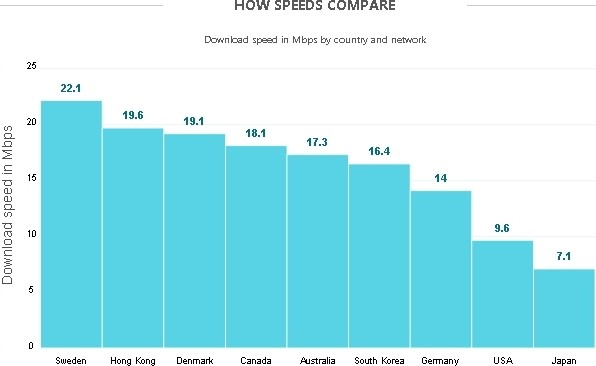Despite having the most developed LTE infrastructure in the world, the speedy 4G network in the US isn’t actually all that fast compared to implementations in other countries. According to a new report from UK network testing firm OpenSignal, seven other nations have faster wireless connections than the ones Americans enjoy.
If you recall, Sweden was the first country in the world to launch a commercial 4G LTE network and according to the report, theirs is also the fastest with an average download speed of 22.1 Mbps. The US assembled LTE networks shortly after Sweden but despite that fact, they rank eighth overall in terms of download speed.

Hong Kong, Denmark, Canada, Australia, South Korea and Germany – in that order – all have faster average download speeds than the 9.6 Mbps scored by the US. The US is a vast country with multiple wireless carriers, so why are they falling so far behind other nations in terms of overall speed?
GigaOm believes it has to do with how wireless networks in the US are configured. They point out that most carriers around the globe are working with 40 MHz of spectrum when deploying a network. In the US, however, carriers are lucky to get half that spectrum. For example, AT&T and Verizon both are using 20 MHz for their rollouts while smaller operators like MetroPCS and Sprint only have 10 MHz to work with.
What is the fastest 4G LTE connection you have seen on your mobile handset locally? For me, I once hit 31 Mbps on a speed test over AT&T’s network in the Memphis, TN area.